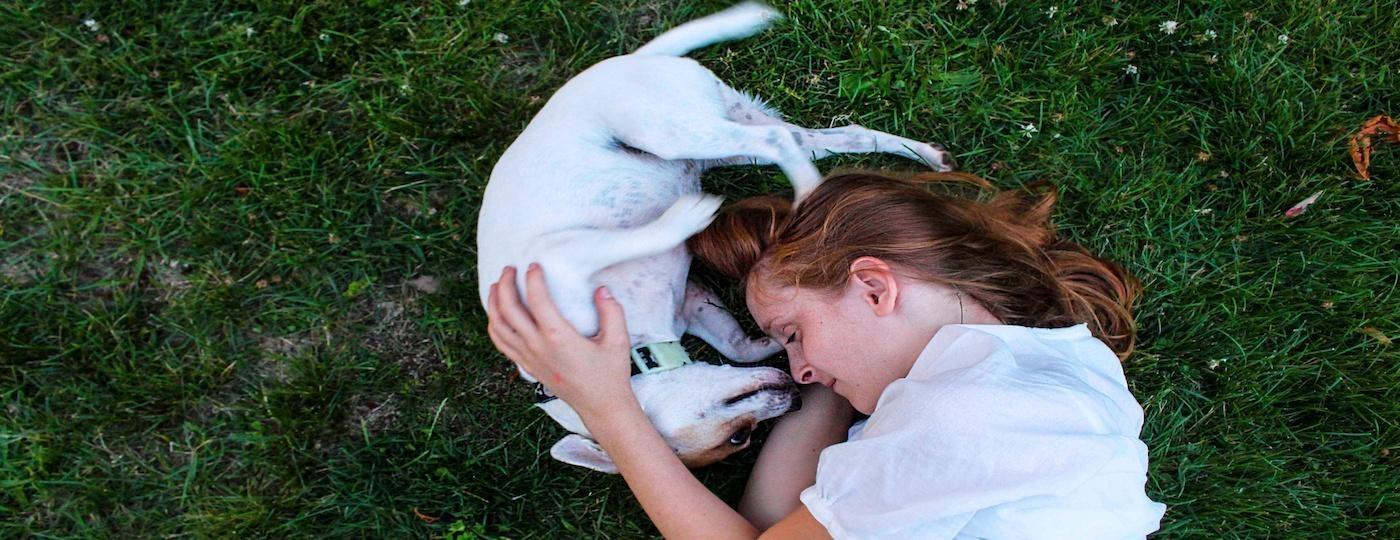Dogs Have Evolved To Understand Humans


I finally get to write a science blog about my dog Fluffy. Well, it’s not exactly about Fluffy, but it’s about how dogs just seem to “understand people.”
Take Fluffy. If I say “let’s go for a walk” she goes to the door. The same is true for “there’s food in your dish.” She checks her dish.
That might not seem like a big deal. But Duke researchers have discovered that it’s a complex cognitive activity that is really rare in animals. Our closest relatives, chimpanzees, can’t do it. And it turns out the dogs’ closest relative, the wolf, can’t do it either.
What it means is that thousands of years of being man’s best friend have altered the minds of dogs. Dogs now have what are known as “theory of mind” abilities. Essentially, mental skills that allow them to infer what humans are thinking and feeling.
The study compared 44 dog and 37 wolf puppies, which were between 5 and 18 weeks old.
At the Wildlife Science Center in Minnesota, wolf puppies were first genetically tested to make sure they were not wolf – dog hybrids. The wolf puppies were then raised with plenty of human interaction, including being fed by hand and sleeping in their caretakers beds. They received almost round-the-clock human care from just days after birth.
In contrast, the dog puppies from Canine Companions for Independence lived with their mother and littermates and had less human contact.
Then the dog and wolf puppies were tested.
In one test, researchers hid a treat inside one of two bowls. Sometimes researchers pointed and looked in the direction the food was hidden. Sometimes, a small wooden block was placed beside the right spot-something the puppies had never seen before- to indicate where the treat was hidden.
The result?
17 of 31 dog puppies consistently went to the right bowl. None of the wolf puppies did better than a random guess. Control tests showed the puppies weren’t sniffing out the food.
That’s right, even with no training, the dog puppies knew where to go and were twice as likely to get it right as the wolf puppies who had spent all of their time around people. Many of the dog puppies got it right on the first try. They just got it.
“It’s not a question of which species in smarter,” said Hannah Salomons, a doctoral student at Duke. Salomons adds that the dog and wolf puppies were both found to be equal in cognitive tests including motor impulse control, which involves going around a transparent object to get food.
“Dogs are born with this innate ability to understand that we’re communicating with them and we’re trying to cooperate with them,” adds Salomons.
Researchers also found the dog puppies more willing to approach strangers while the wolf puppies ran and hid. And if food was sealed in a container and gives to the puppies, the wolf pups tried to solve it on their own while the dog puppies spent more time looking at people for help.
“This study really solidifies the evidence that the social genius of dogs is a product of domestication,” said Brian Hare, professor of evolutionary anthropology at Duke. “It offers some of the strongest evidence yet for what’s become known as the “domestication hypothesis.”
The theory goes like this.
Somewhere between 12,000 and 40,000 years ago, dogs shared and ancestry with wolves. When humans and wolves first met, it makes sense that only the friendly wolves were allowed to get close to people and get food.
\That continued for generations, with the friendlier wolves passing on what we’ll call the “be nice to people” genes. Finally, the wolf’s descendants mastered the ability to understand what human’s wanted by watching gestures and social cues.
“We think this indicates a really important element of social cognition,” said Hare, “which is that others are trying to help you.”
The study appears in the July 12, 2021 journal Current Biology. And Fluffy is wagging her tail and looking at me.